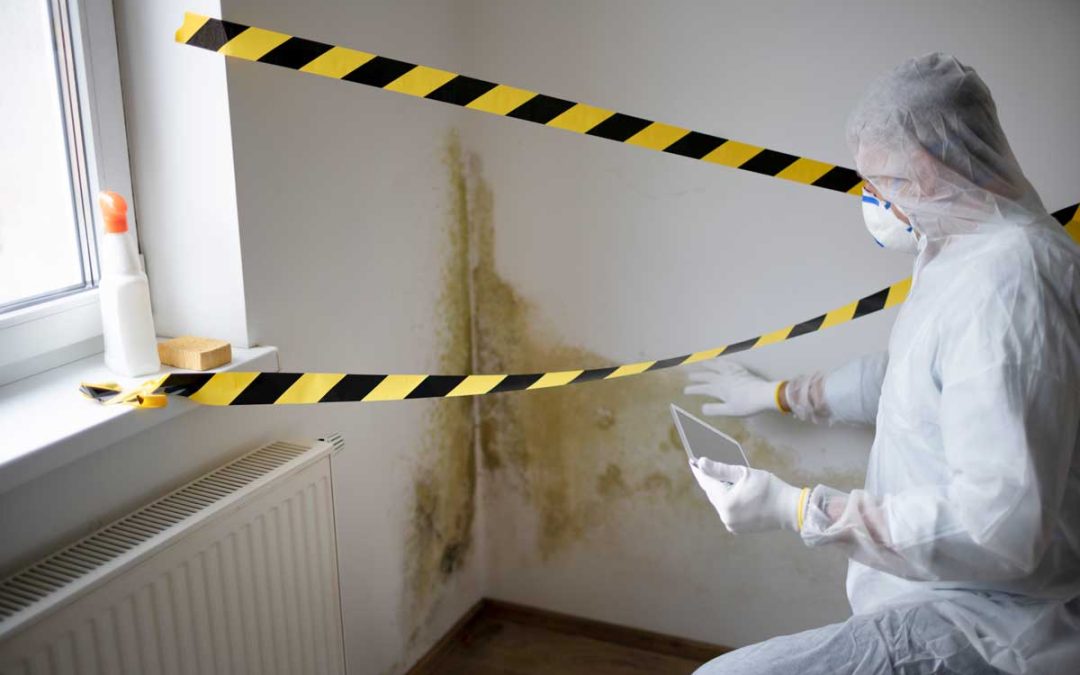Mold is a common issue that can have serious health implications if not addressed promptly. Regular mold inspections are essential to maintaining a safe and healthy living environment. In this blog post, we’ll explore the importance of mold testing and inspection, and provide an overview of the main types of mold found in homes.
The Silent Invader: Understanding Mold
Mold is a type of fungus that thrives in damp, humid environments. It can grow on various surfaces, including walls, ceilings, and floors, and often goes unnoticed until it becomes a significant problem. Mold exposure can cause a range of health issues, such as respiratory problems, allergies, and even more severe conditions in individuals with compromised immune systems.
Common Types of Household Mold
- Aspergillus: This is one of the most common types of mold found indoors. It can appear in various colors, including green, yellow, or white. Aspergillus can cause allergic reactions and respiratory issues, especially in individuals with weakened immune systems.
- Cladosporium: This mold is typically found in cool, damp areas like basements and under sinks. It appears as black or green spots and can cause allergic reactions, including skin rashes and asthma.
- Stachybotrys (Black Mold): Known as “black mold,” Stachybotrys is notorious for its potential health risks. It usually grows on materials with high cellulose content, such as wood, paper, and drywall. Exposure to black mold can lead to severe respiratory issues, chronic fatigue, and neurological problems.
- Penicillium: This mold is often blue or green and grows on materials that have been damaged by water, such as wallpaper, carpets, and insulation. Penicillium can cause respiratory problems and allergic reactions.
- Alternaria: Alternaria is commonly found in damp areas such as showers, bathtubs, and under leaky sinks. It can cause allergic reactions and asthma attacks, particularly in sensitive individuals.
The Role of Certified Mold Inspection
A professional mold inspection is the first step in identifying and addressing mold issues in your home. Certified mold inspectors offer several key benefits:
- Accurate Identification: Trained specialists can accurately identify the types and extent of mold contamination, ensuring that all mold issues are properly addressed.
- Comprehensive Mold Testing: Certified inspectors use advanced techniques and equipment for mold testing, including air and surface sampling. Mold testing is crucial for detecting mold spores that might not be visible to the naked eye.
- Detailed Site Assessment: Inspectors conduct thorough inspections of all areas of your home, especially those prone to moisture. This helps identify hidden mold growth and the sources of moisture promoting mold development.
- Customized Remediation Plans: Based on the inspection results, certified professionals develop tailored remediation plans to effectively address mold issues and prevent future growth.
Why Choose Professional Mold Inspection?
Opting for a certified mold inspection ensures that you receive the highest standard of service. Certified inspectors adhere to industry standards and regulations, providing you with peace of mind that your mold issues will be handled professionally. Additionally, their expertise and experience mean they can offer practical advice on preventing mold recurrence, safeguarding your home, and protecting your family’s health.
A Healthier Home Starts with Mold Inspection
Regular mold inspection and prompt attention to mold issues are essential steps in maintaining a healthy home. By addressing mold problems early, you can prevent health issues and structural damage. Don’t wait for mold to become a significant issue—schedule a mold inspection today and breathe easier knowing your home is safe and healthy.
In conclusion, understanding the common types of household mold and the importance of certified mold inspection can help you maintain a healthy living environment. Trust certified professionals to handle your mold inspection needs and ensure the safety and comfort of your home.

